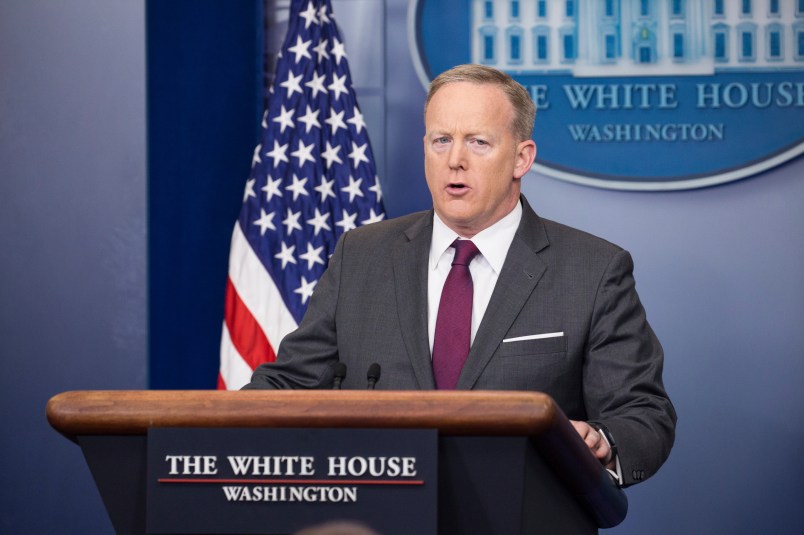The White House maintained on Monday that it is looking into ways to create libel laws in order to sue publications that print unflattering or untrue coverage of the President.
On Sunday, a day after President Trump railed against the press at a rally marking his 100th day in office, White House chief of staff Reince Priebus said of amending the Constitution to expand libel law: “I think it’s something that we’ve looked at, and how that gets executed or whether that goes anywhere is a different story.”
White House spokesperson Sean Spicer doubled down on Monday.
“Is that a project that is currently being worked on by the counsel’s office?” the New York Times’ Glenn Thrush asked, referring to Priebus’ statements. “Can you tell me the status of that? Who is pursuing that?”
“I think the chief of staff made it very clear that it’s something that is being looked into, substantively and then both logistically, how it would happen” Spicer said. “But that’s nothing new. It’s something the President talked about on the campaign trail.”
“Is the counsel actually—” Thrush attempted.
“I will not go into it,” Spicer said.
Indeed, the President often said during the Presidential campaign, and since, that he wished to change libel laws so that he would be able to sue for “purposefully negative, and horrible and false articles” and “hit pieces.”
The Supreme Court has ruled that libel damages can be awarded to public officials only as a result of “actual malice.” Unintentional factual inaccuracies are protected by the First Amendment, as is speech critical of of the President.







“If you can’t stand the heat…”
It’s the First Amendment for a reason, Spiceclown. It’s not going anywhere, you know it, Reince knows it, and you all embarrass yourselves every time you pretend it might be in danger.
1st amendment Trumps the 2nd amendment.
Few things are certain in life.
One constant
If Spicer’s lips are moving he is lying
I mean just look at the last 5 posts
It would be news if he told the truth
Sadly, it is why the Right is coalescing around a call for a Constitutional convention. This idea makes every State level election more crucial than what is on the surface. The country changes irreparably if this goes through.